
Online Science Units for Teachers and Students
About Project ESCOLAR
The goal of Project ESCOLAR is to improve science content learning for all middle school students—especially for students with learning disabilities. Participating teachers have access to online science units for their students, professional development resources, and support from project staff.
By taking part in the project, teachers not only help their students learn science, but they also help inform research and practice in online science learning.

Student Outcomes
Project ESCOLAR’s online science units take advantage of Project-Based Learning principles to engage students in science. In your classroom, students collaborate on the forum with other students, watch videos and play games that teach science content, and check their understanding through interactive formative and summative evaluations.
Potential benefits for students who study with the units include:
Free access to online science resources
Increased science knowledge (documented in studies with sixth- to eighth-grade students, including English language learners and students with learning disabilities)
Improved proficiency in academic reading
More positive attitudes towards science
Opportunities, with an online forum, to collaborate with others in their class and in other schools

Professional Development
Professional development resources are designed to help teachers make the most of the online units with their sixth-, seventh-, and eighth-grade students.
Included in these resources are:
Lesson plans that provide insight into what lessons cover, key vocabulary to emphasize, and tips on integrating the concepts.
Guidance for teaching with technology and how to promote collaboration in the classroom.
Instructional and reading comprehension strategies for teaching science to students with learning disabilities.
Curriculum materials that outline how each unit specifically aligns to the Next Generation Science Standards.

Curriculum
Teachers and students participating in Project ESCOLAR have access to different online units. Each unit focuses on one middle school (sixth- to eighth-grade) science curriculum. Units incorporate concepts specific to the Next Generation Science Standards and Common Core State Standards, and are relevant to students’ everyday lives.
Collaborative Online Learning (COL) Units
Life Science
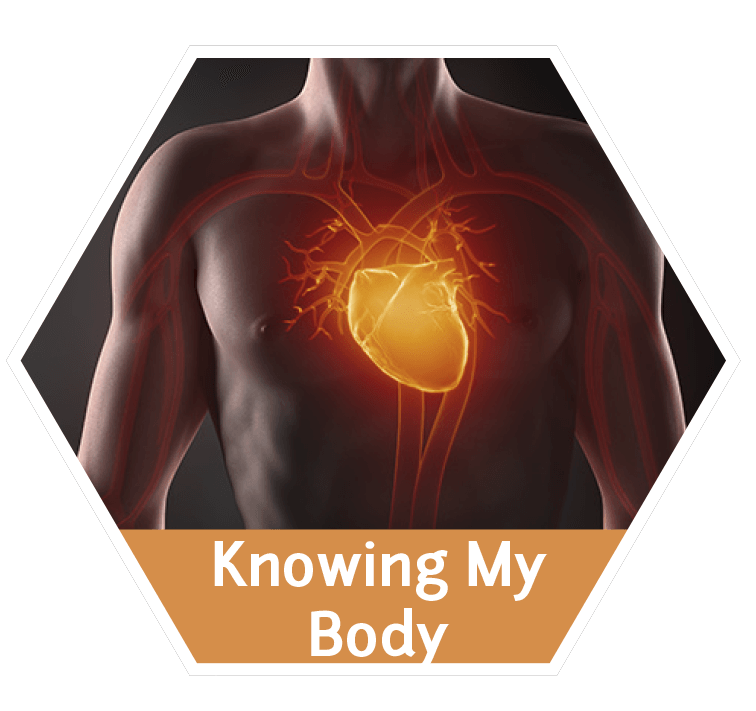
| Focus: | Structure and function of the human body. |
| Topics: | Cell structure; tissues; organs; and body systems. |
| Applications: | By studying the human body, students learn how choices affect their health. |
| NGSS: | MS. Structure, Function, and Information Processing. |
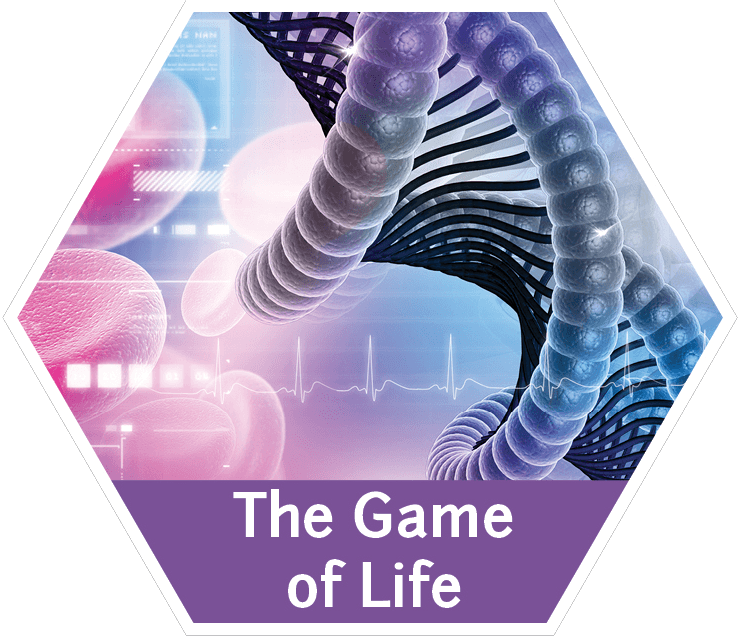
| Focus: | Reproduction and genetics. |
| Topics: | Plant and animal reproduction; cell reproduction; organism multiplication; heredity; and DNA. |
| Applications: | By studying inheritance, students learn what makes them unique. |
| NGSS: | MS. Growth, Development, and Reproduction of Organisms. |
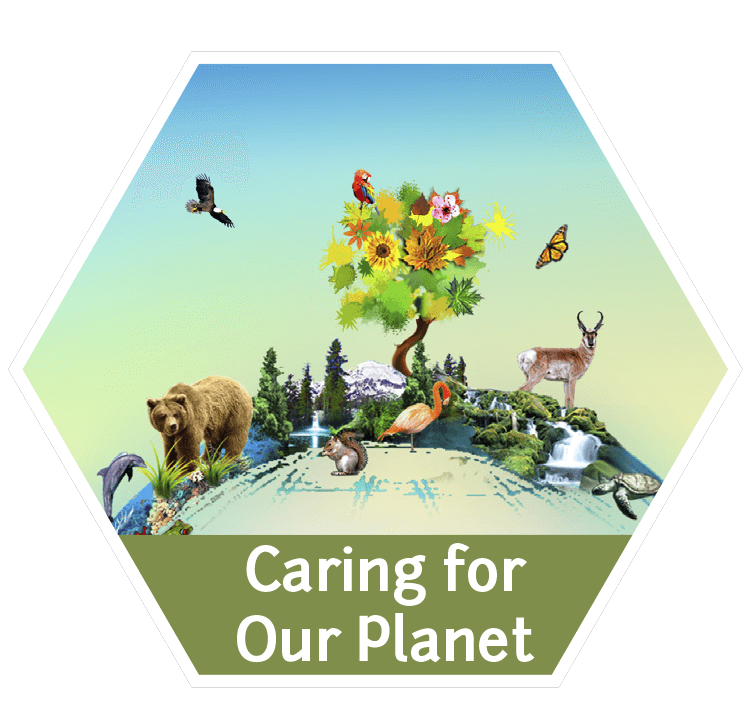
| Focus: | Environmental changes that affect life. |
| Topics: | Interactions in ecosystems; species variation; and natural and human impacts. |
| Applications: | By studying the environment, students learn how they impact the planet. |
| NGSS: | MS. Matter and Energy in Organisms and Ecosystems. MS. Interdependent Relationships in Ecosystems. |
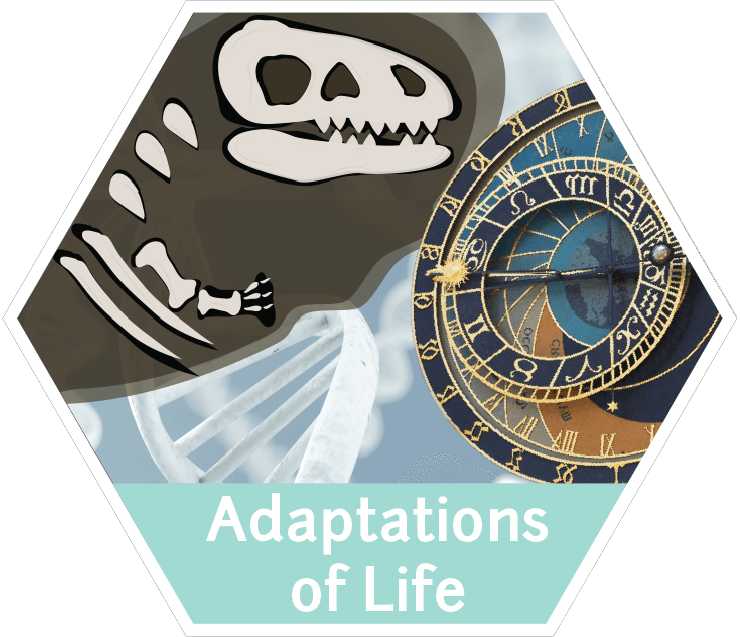
| Focus: | Examination of evidence for natural selection, evolution, and adaptations. |
| Topics: | Fossil records of life on Earth; evolutionary relationships; embryonic similarities; genetic variation; and natural selection. |
| Applications: | By studying adaptations, students learn why life on Earth exists today in many forms. |
| NGSS: | MS. Natural Selection and Adaptations |
Earth and Space Science
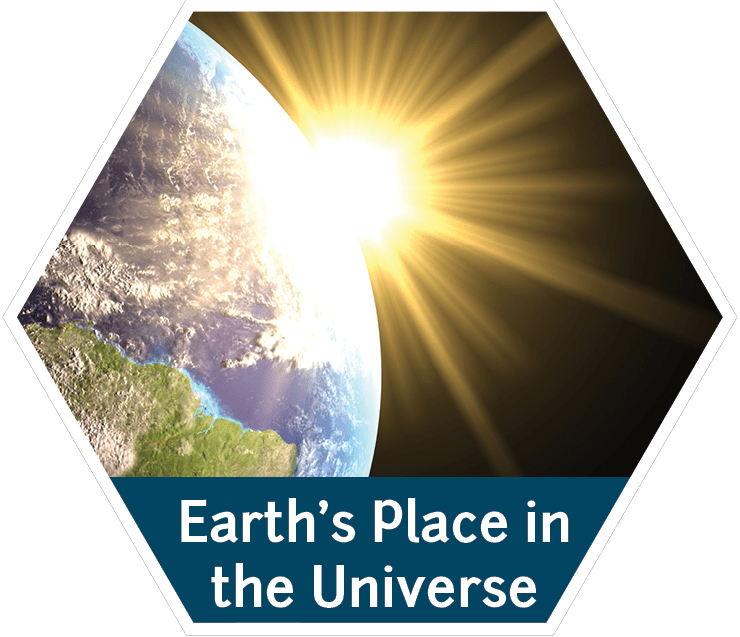
| Focus: | Space systems related to Earth and how these systems influence life. |
| Topics: | Moon phases, rotation and revolution, the solar system. |
| Applications: | By studying Earth and space systems, students learn how scientists investigate the universe and make discoveries. |
| NGSS: | MS. Space Systems. |
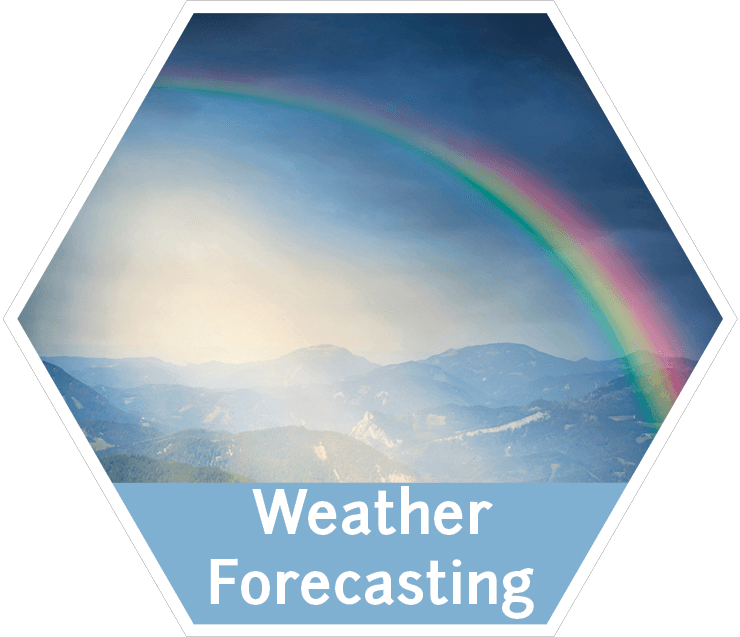
| Focus: | Weather and climate, and human impacts. |
| Topics: | Earth’s spheres; air and winds; energy transfer; weather; climate; and global warming. |
| Applications: | By studying weather, students learn how their behavior can affect Earth’s climate. |
| NGSS: | MS. Weather and Climate. MS. Human Impacts. |
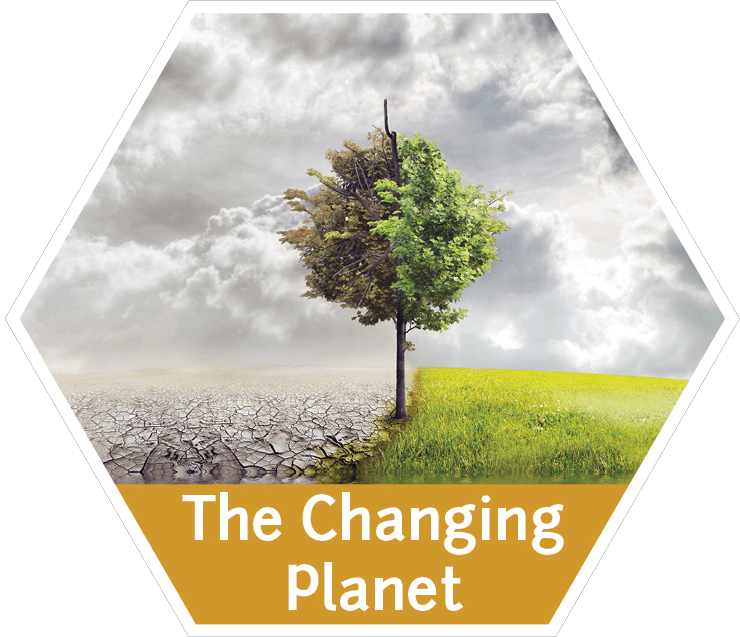
| Focus: | Earth’s systems and cycles for recycling materials. |
| Topics: | Water cycle; rock cycle; minerals; flow of energy; and geoscientific processes. |
| Applications: | By studying Earth’s systems and cycles, students learn how their actions can impact the Earth. |
| NGSS: | MS. Earth’s Systems MS. Human Impacts. |
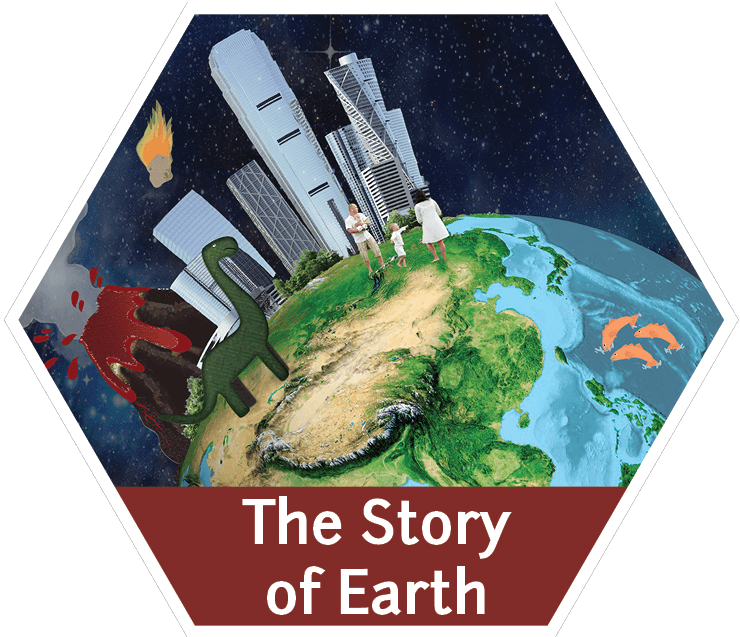
| Focus: | Organization of Earth’s history on the geologic time scale. |
| Topics: | Geologic time scale; plate tectonics; and fossil evidence. |
| Applications: | By studying Earth’s history, students consider how Earth today came to be. |
| NGSS: | MS. History of Earth |
Physical Science
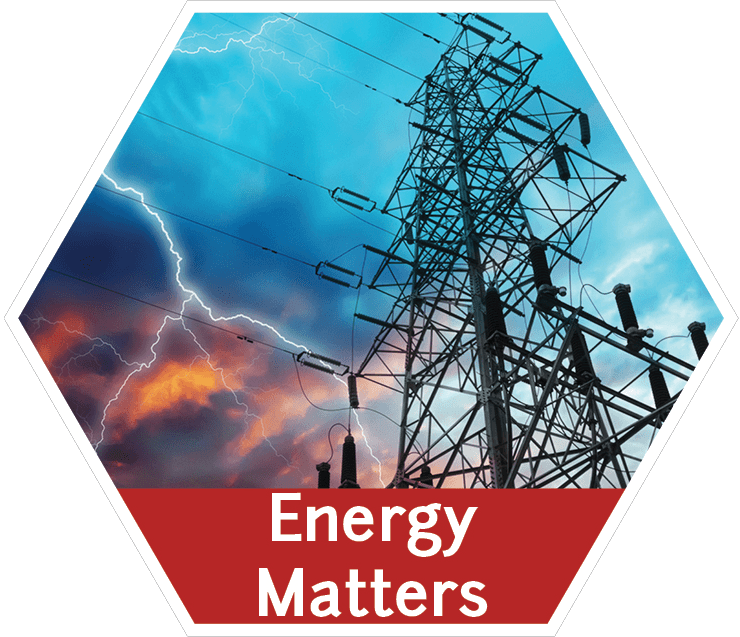
| Focus: | Uses of energy on Earth. |
| Topics: | Types of energy; energy transformations; temperature; and energy sources. |
| Applications: | By studying energy, students learn how their energy choices affect the health of the planet. |
| NGSS: | MS. Energy. |

| Focus: | Chemical reactions. |
| Topics: | Properties and essential uses of chemical reactions; elements; and substances. |
| Applications: | By studying chemical reactions, students learn about how and why these processes are necessary for life on Earth. |
| NGSS: | MS. Chemical Reactions. |

| Focus: | Use of matter on Earth. |
| Topics: | What matter is; forms of matter; how matter is changed; and matter’s properties. |
| Applications: | By studying matter, students learn how matter makes up all things we need and why there are different materials in the universe. |
| NGSS: | MS. Structure and Properties of Matter. |
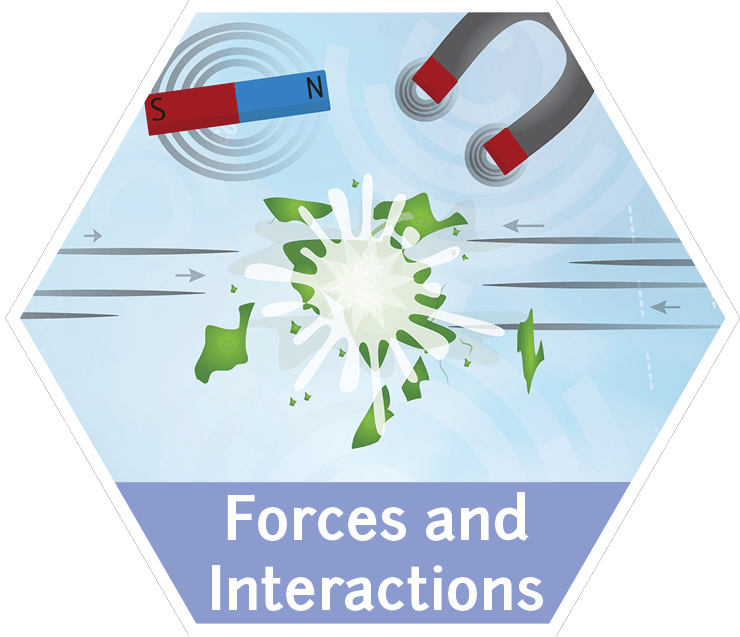
| Focus: | Relationship of force and motion on interacting objects. |
| Topics: | Motion; laws of physics; and electric and magnetic forces. |
| Applications: | By studying forces and interactions, students learn how objects and living things move and interact with each other. |
| NGSS: | MS. Forces and Interactions |
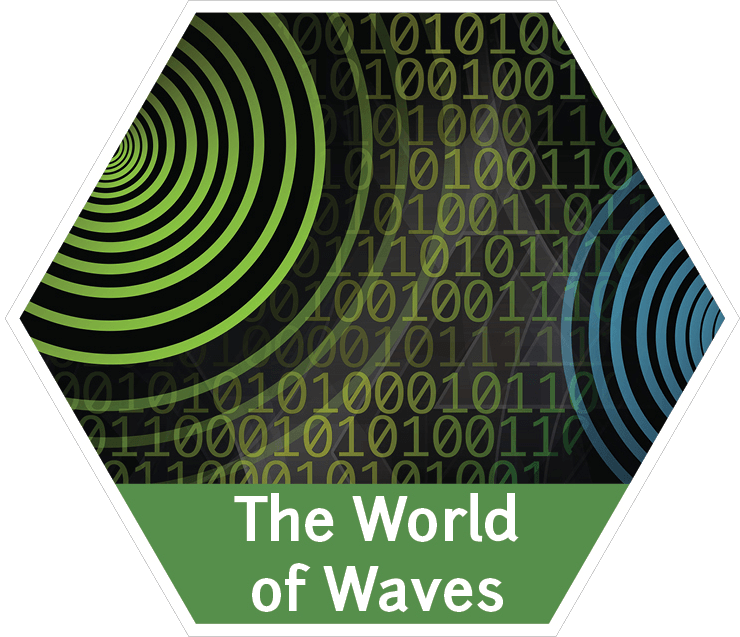
| Focus: | Properties of waves and their use in transferring sound, matter, and water waves. |
| Topics: | Models and properties of waves; waves in relation to everyday life; transfer of electromagnetic radiation; and use of signals for transmitting information. |
| Applications: | By studying waves, students learn how waves are part of everyday life. |
| NGSS: | MS. Waves and Electromagnetic Radiation |
Foundational Skills

| Focus: | Purpose and use of scientific models in science. |
| Topics: | Development and evaluation of graphical, mathematical, conceptual, and physical models. |
| Applications: | By studying scientific models, students learn how various models can be used to explore and explain scientific concepts. |
| NGSS: | MS. Engineering Design. |

| Focus: | Experimental design and the scientific inquiry process. |
| Topics: | Research questions; hypothesis; experimental design; data analysis; and drawing conclusions. |
| Applications: | By studying the scientific inquiry process and scientific experiments, students learn how they can work as scientists to address questions that interest them. |
| NGSS: | MS. Engineering Design. |
Lesson Structure
Each unit is structured to include multimodal and multimedia activities for students, including:
Warm-ups: Introduce students to content by relating their experiences to the information they will learn (for instance, students think about diseases they’ve had before learning about the immune system)
Content Lessons
Read and Discover: Text that teaches content (for instance, description about the digestive system)
Bring It to Life: Links to a lab or field activity (such as having students place different organs in the human body)
Check It Out: Links to video, game, or interactive activity (for example, an animation about the building blocks of life)
Evaluation Lessons
What Do You Say? Students explore their own ideas about what they are learning (for instance, by writing and drawing about the process of diffusion in their notebooks)
Now You Try: Students do practical exercises using their new knowledge (such as calculating their body mass index from height and weight)
Learn More
-
For free access to Project ESCOLAR’s online student units and teacher resources, contact This email address is being protected from spambots. You need JavaScript enabled to view it..
For five tips to get started using online units in your classroom, click here.
